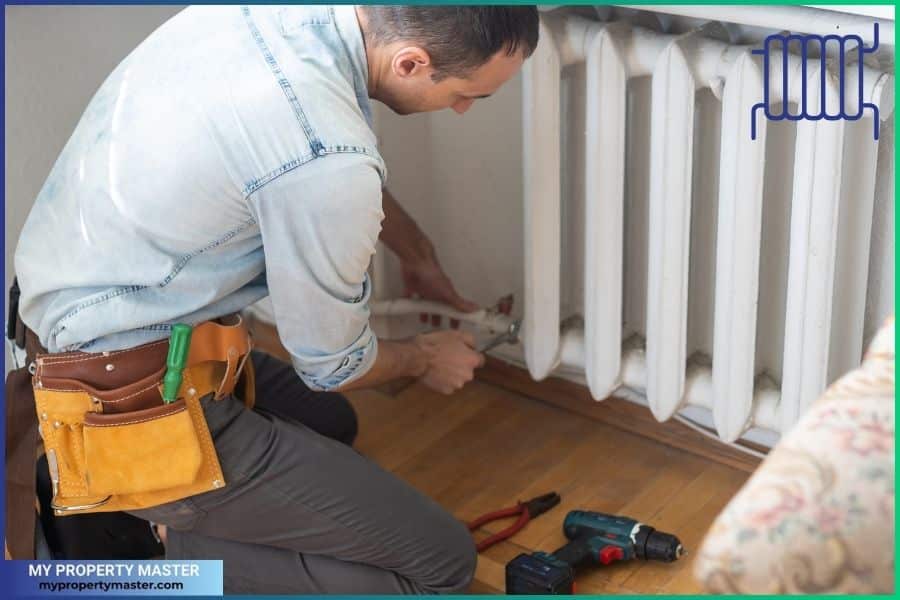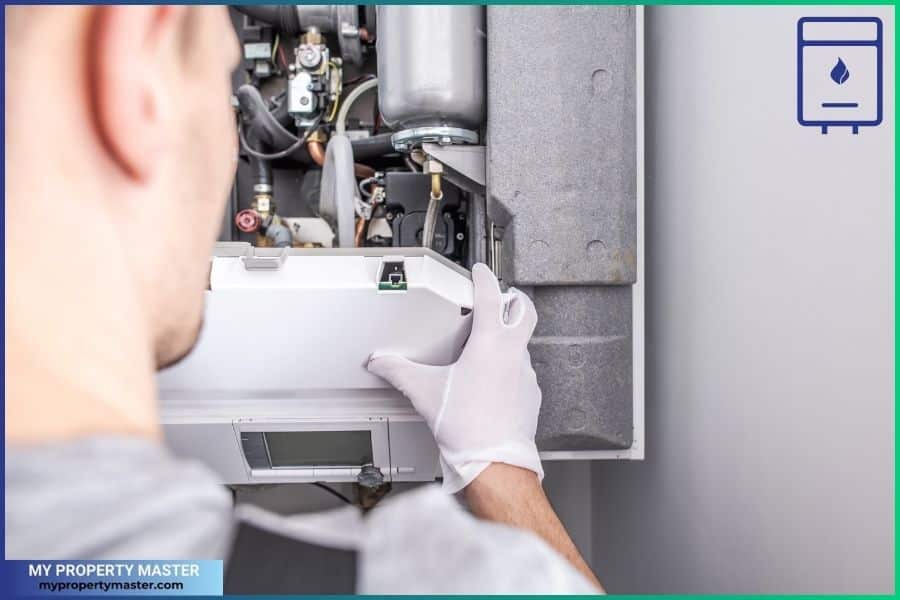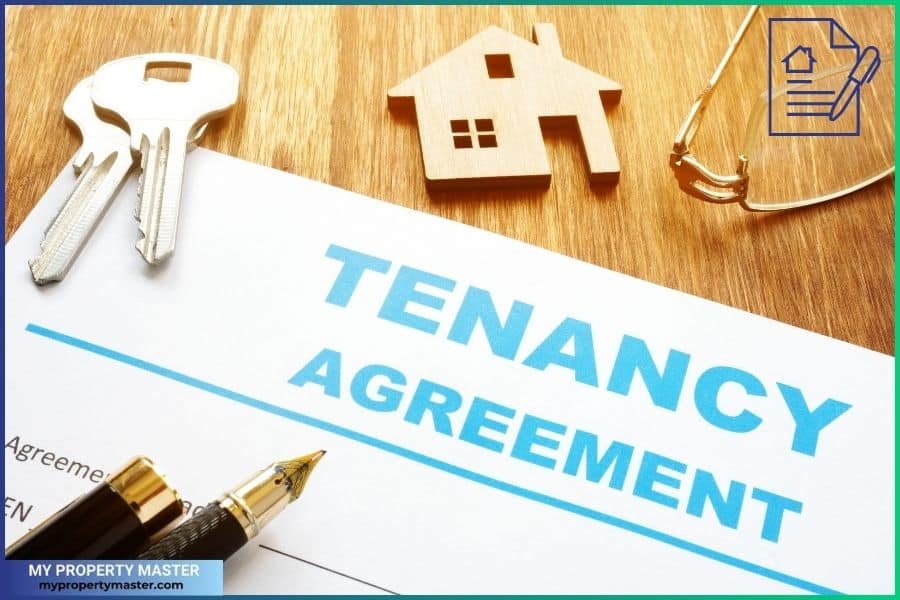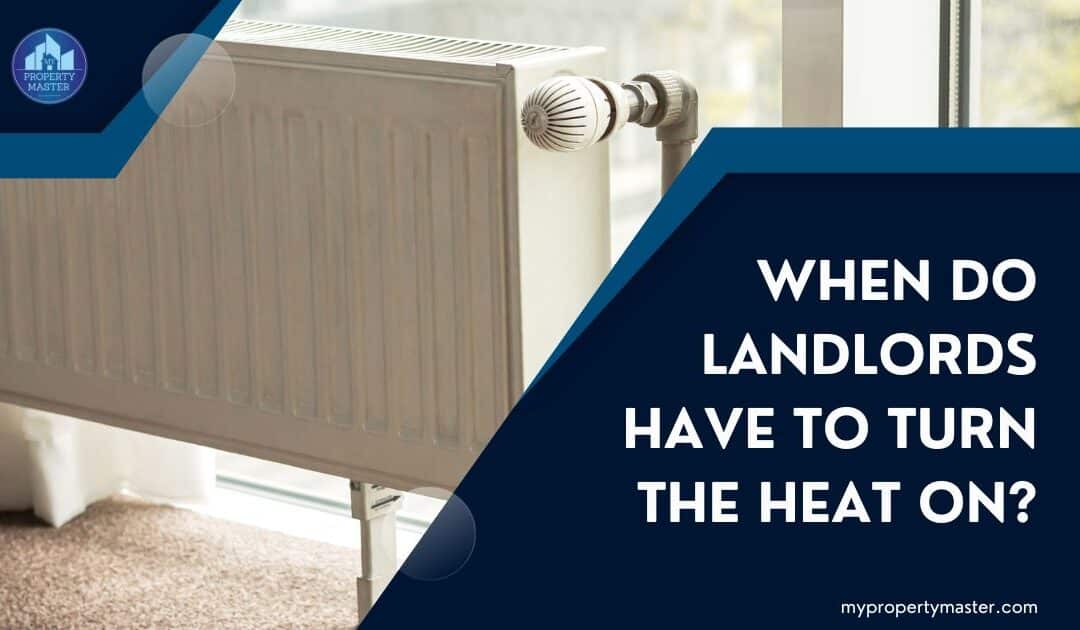The specific regulations regarding when landlords must turn on the heat can vary depending on the location and local housing laws. In many places, there are legal requirements for landlords to provide a minimum level of heat during specific periods, typically in the colder months.
Some states and municipalities in the United States have specific regulations outlining when landlords must provide heat. Commonly, these requirements specify that landlords must maintain a specific minimum temperature in rental units during the heating season, often defined as the period from October 1st to May 31st.
As a property management company, we serve some specific areas and know well about the laws in those areas. However, it’s essential to check the local housing laws in your area, as they can vary. This information may be available through your local housing authority, tenant rights organizations, or online resources provided by local government websites. You may need to consult a legal professional if you’re uncertain about your rights as a tenant or a landlord’s obligations.
In this article, I will try to provide you with the most accurate information and answer your heating-related questions. Therefore, please let me know in the comments if you still have any questions.
Heating provisions in Rhode Island

In Rhode Island general laws, under Title 45, they have stated the housing maintenance and occupancy code that clearly states the minimum thermal standards for heating.
Every dwelling must have heating facilities properly installed and maintained in safe and working condition, and capable of safely and adequately heating all habitable rooms, bathrooms, and water closet compartments in every dwelling unit located at a distance of eighteen inches (18″) above the floor level under average winter conditions to a temperature of at least sixty-eight degrees (68 °) fahrenheit.
US Law, Case Law, Codes, Statutes & Regulations
It clearly indicates the requirements for heating in a place where people live, like an apartment or house. It says that every living space must have a heating system that is set up correctly and is safe to use.
This heating system should be able to warm up all the rooms where people live, including bedrooms, bathrooms, and water closets (toilets).

When measured about 18 inches above the floor, the heated space should be at least 68 degrees Fahrenheit, especially during typical winter conditions. In simpler terms, every home must have a working and safe heating system that keeps the living spaces comfortably warm, particularly during colder weather.
Related: List of handyman services and their meaning.
Can a tenant chase for installing and turning on the heating machine?

In some cases, there might not be any heating machine installed, or landlords may want to turn them on for insufficient time.
Can you chase or demand it?
Well, everything boils down to the local laws and the contract. In many jurisdictions, tenants have the right to live in a habitable and safe environment. This includes the right to a reasonably warm living space. The specific temperature requirements can vary by location and local housing codes, but generally, landlords are obligated to provide adequate heating to maintain a reasonable temperature during colder months.
Tenants may have the right to demand a warm living space under the following circumstances:
Implied Warranty of Habitability

Many jurisdictions have an implied warranty of habitability, meaning landlords are required to maintain rental properties in a habitable condition. This includes providing adequate heating systems to ensure a comfortable living environment.
Read also: Pros and cons of hiring a property management company in the US.
Local Housing Codes

Local housing codes and regulations often outline specific requirements for heating in rental properties. Tenants can refer to these codes to understand their rights and the landlord’s responsibilities regarding heating.
Read also: How much can your landlord raise the rent ($300, $500, etc.)?
Lease Agreement

A lease agreement may specify specific heating-related terms. Tenants should review their lease to understand the agreed-upon conditions regarding heating and the landlord’s responsibilities.
Related: What to look for in a lease agreement?
Gist words
If a tenant finds that the living space is unreasonably cold, they typically have the right to request that the landlord address the issue. This could involve repairing or replacing a malfunctioning heating system, improving insulation, or taking other measures to ensure a warm and habitable environment.
Tenants should communicate with their landlords in writing, providing details of the issue and requesting prompt resolution. If the landlord fails to address the problem, tenants may have legal remedies available, such as filing a complaint with local housing authorities.
Lastly, as a tenant, you should familiarize yourself with local laws. If you have any concerns about the heating conditions, you can get advice from your local tenant rights organization.
Read also: Why do people prefer short-term rental apartments over hotels?
What can a tenant do if the landlord does not turn on the heat?

If a landlord fails to turn on the heat in a rental property, leaving the tenant without adequate heating during the colder months, the tenant may take the following steps:
Check Local Laws and Lease Agreements
Review local housing codes and tenant protection laws to understand the specific requirements for heating in rental properties. Additionally, check the lease agreement for any terms related to the landlord’s responsibility for providing and maintaining heating systems.
Read also: Can a landlord show an apartment while occupied?
Communicate with the Landlord

In writing, notify the landlord about the lack of heating and request immediate action to rectify the situation. Clearly outline the issue, provide evidence if possible, and set a reasonable deadline for the landlord to address the problem.
Read also: Main reasons to evict a tenant.
Document the Issue
Record all communications with the landlord, including dates, times, and details of conversations or written correspondence. Take photographs or videos as evidence of the inadequate heating conditions.
Read also: What is the CAM fee, and how is it calculated?

If the landlord does not respond or fails to address the issue, tenants may contact local housing authorities or code enforcement agencies to file a complaint. These agencies may inspect the property and enforce compliance with housing codes.
Read also: Never hire property maintenance companies until you read this.
Tenant Remedies
Depending on local laws, tenants may have the right to withhold rent, repair and deduct the cost from rent, or seek a court order to compel the landlord to provide adequate heating. However, it’s crucial to understand your jurisdiction’s specific legal requirements and limitations before taking such actions.
Read also: Everything you need to know about property management workflow.
Legal Assistance

If the issue persists and legal action becomes necessary, tenants may seek advice from a tenant rights organization. Also, they can consult with an attorney specializing in landlord-tenant law.
Remember that the specific steps and remedies available to tenants vary based on local laws and regulations. It’s crucial to be familiar with the tenant rights and landlord obligations in your jurisdiction and, if needed, seek legal advice for a situation tailored to your specific circumstances.
Read also: How much does a property management company charge?
Conclusion
Understanding when landlords must turn on the heat is crucial for tenants and property owners. Regulations regarding heating provisions vary based on location, with specific requirements outlined in local laws, housing codes, and lease agreements.
Tenants have the right to live in a habitable environment, including a reasonably warm living space. They can take steps to address heating issues if the landlord fails to maintain rental properties in a habitable condition.
Communication, documentation, and knowledge of local laws are essential for resolving such concerns. Ultimately, tenants should proactively seek legal advice and remedies if needed, ensuring a comfortable and compliant living environment by their jurisdiction’s regulations.
Lastly, if you’re thinking of changing your home/apartment, you can contact us so we can find a better place to live. Similarly, landlords can also contact us to maintain their rental properties.






